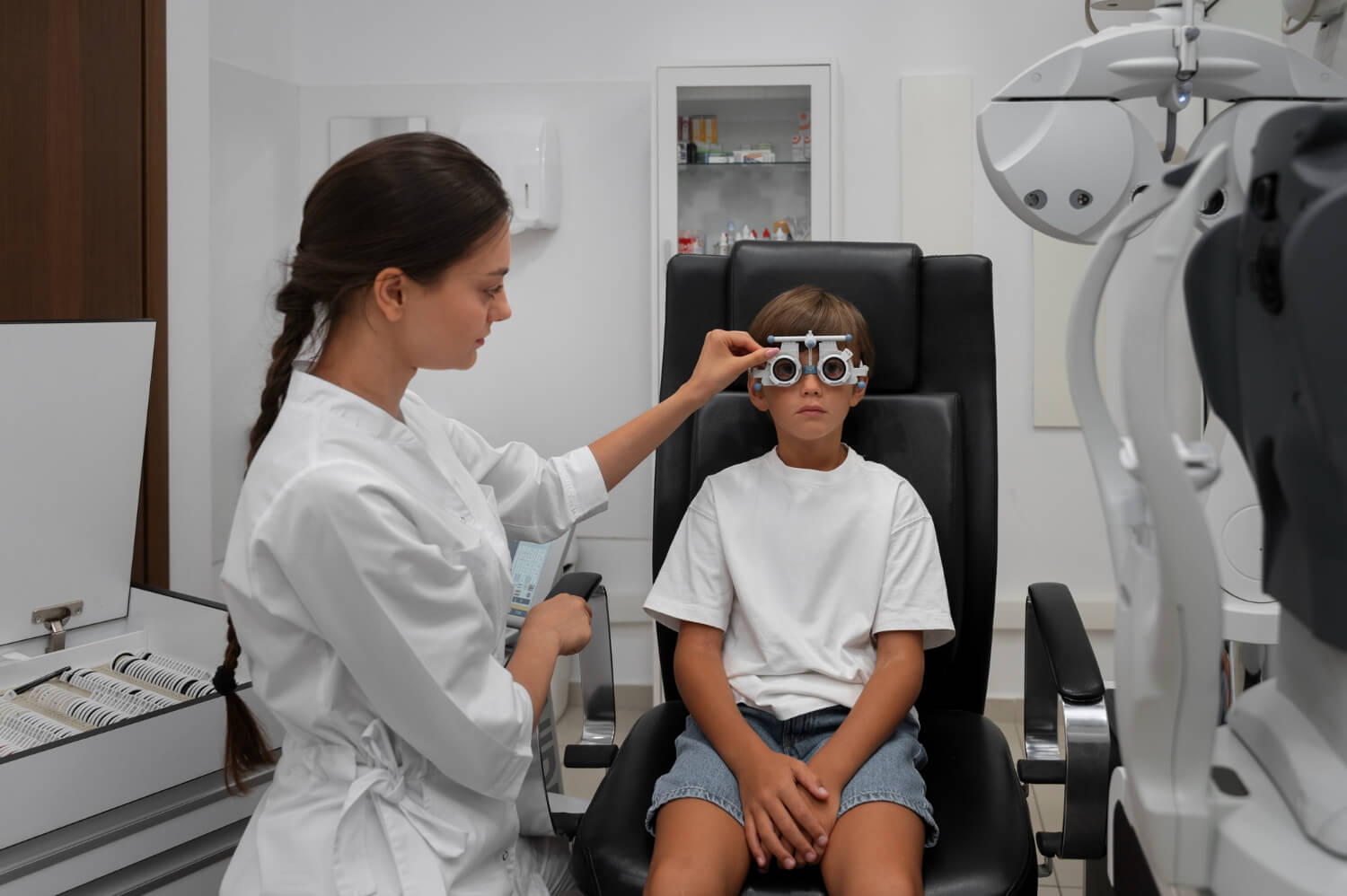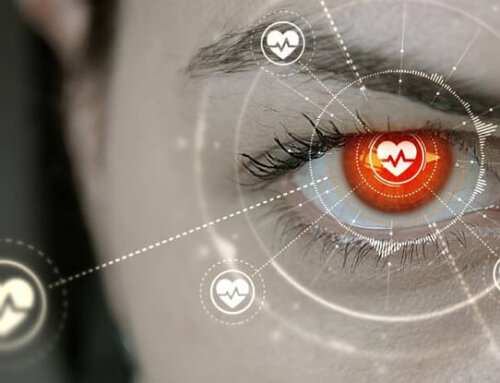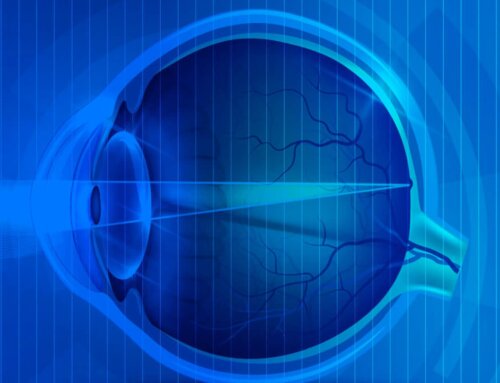Summary
Discover how early detection of eye diseases using advanced AI retinal imaging can prevent serious vision loss, improve patient outcomes, and reduce long-term healthcare costs.
Early Detection of Eye Diseases
Discover how early detection of eye diseases using advanced AI retinal imaging can prevent serious vision loss, improve patient outcomes, and reduce long-term healthcare costs.
Your eyes are your gateway to the world, and protecting them starts with early detection. From diabetic retinopathy to glaucoma and age-related macular degeneration, many serious eye diseases develop without early warning signs. But with regular eye exams and cutting-edge tools like AI retinal screening, you can take control and spot potential issues before they affect your vision.
Acting early can preserve your sight, improve your quality of life, and prevent serious long-term complications. Read on to discover how staying vigilant about your eye health can make all the difference.
The Importance of Early Detection in Eye Health
Vision impairment affects millions of Australians. According to the Australian Bureau of Statistics (ABS) 2017–18 National Health Survey (NHS), an estimated 13 million people have one or more chronic eye conditions. The Australian Institute of Health and Welfare anticipates this number will rise as the population ages.
The good news? Many eye conditions, such as diabetic retinopathy, glaucoma, and age-related macular degeneration (AMD), can be effectively managed or even prevented with early diagnosis and timely treatment. Research shows that up to 95% of blindness caused by diabetic retinopathy can be prevented through early diagnosis and treatment. Additionally, Australia’s Eye Health Survey 2016, cited in this article, highlights that regular screening can prevent up to 90% of diabetes-related vision loss.
Early detection allows for intervention before symptoms appear, significantly improving treatment outcomes and reducing the likelihood of permanent damage. It also helps prevent complications linked to certain eye diseases, such as an increased risk of cardiovascular disease associated with diabetic retinopathy. This early diagnosis can bring a sense of relief, knowing that you’re taking proactive steps to protect your vision.
By identifying early signs of glaucoma or conducting regular diabetic retinopathy screenings, you can avoid irreversible damage that might otherwise go unnoticed until it’s too late. These regular screenings can provide a sense of security, knowing that you’re staying ahead of potential issues.
Common Eye Diseases and Their Early Signs
Several eye conditions can significantly impact vision. Recognising their early signs can be crucial for managing or even preventing severe vision loss. Here are some critical conditions to watch for:
- Diabetic Retinopathy: A complication of diabetes affecting the blood vessels in the retina. Early signs include:
- Blurry vision, especially at night
- Floaters or flashes of light
- Glaucoma: Known as the “silent thief of sight,” it involves increased pressure within the eye that damages the optic nerve. Early symptoms may include:
- Peripheral vision loss
- Headaches
- Age-Related Macular Degeneration (AMD): Affects the macula, responsible for central vision. Early signs include:
- Difficulty reading or seeing fine details
- Distorted vision (where straight lines appear wavy)
It’s crucial to remember that the absence of symptoms does not necessarily mean good eye health. Regular comprehensive eye exams are essential for everyone, regardless of age or perceived vision quality. Early detection of these diseases can prevent permanent vision loss and reduce the need for more invasive treatments in the future.
For a thorough health assessment, consider using advanced screening tools like those offered by Optain Health or visiting an optometrist for a comprehensive evaluation.
How AI Technology Is Revolutionising Eye Disease Detection
The field of eye care is undergoing a remarkable transformation with the integration of Artificial Intelligence (AI). AI retinal screening tools, such as those offered by Optain, are at the forefront of this revolution, dramatically changing how eye diseases are detected and managed.
These cutting-edge technologies capture high-resolution images of the retina, providing a detailed view of its structure and blood vessels. AI algorithms then analyse these images, identifying subtle abnormalities that might indicate early signs of eye diseases.
Traditionally, eye conditions were diagnosed based on physical symptoms or after advanced-stage disease had developed. Today, AI-powered tools like AI retinal imaging are redefining this approach. By employing sophisticated algorithms to examine retinal images, AI can detect early indicators of diseases such as AMD or diabetic retinopathy before symptoms are noticeable.
This advancement allows for:
- Early diagnosis
- More personalised treatment plans
- Enhanced accuracy
- Non-invasive procedures
AI technology improves patient outcomes and reduces long-term healthcare costs by facilitating early intervention and preventing disease progression. The shift to AI-driven diagnostics represents a significant leap forward in eye care, making it more efficient and effective than ever before.
Optain Health’s Role in Early Detection: Advanced Retinal Imaging
At Optain Health, we are transforming eye care with our state-of-the-art technology. Our innovative solutions, including the Eyetelligence Assure and Resolve Camera, empower clinicians to offer fast, accurate, and non-invasive methods for retinal screening. Discover how we advance early detection and provide comprehensive health assessment tools.
Our advanced tools support eye care professionals in identifying potential issues at their earliest stages, facilitating prompt intervention and significantly enhancing patient outcomes. Incorporating our AI-driven technology into routine screenings ensures that patients receive precise and timely assessments.
What makes our retinal imaging technology exceptional includes the following:
- The speed with which we deliver results
- The accuracy we achieve in detecting early signs of disease
- The non-invasive nature of our methods ensures a comfortable experience for patients
With our cutting-edge technology, you can trust that you are receiving the highest standard of care. Contact us to schedule an assessment or learn more about how our technology can benefit your eye health.
Improving Patient Outcomes Through Early Diagnosis
The advantages of early detection of eye diseases extend well beyond preserving vision. Early diagnosis can lead to:
- More Effective Treatment Options: Detecting conditions like diabetic retinopathy, glaucoma, or AMD early often results in better treatment outcomes, reducing the risk of vision loss and long-term complications.
- Reduced Healthcare Costs: Addressing eye diseases early can significantly lower the overall costs associated with managing chronic conditions. Timely intervention often means fewer expensive and invasive treatments later on.
- Improved Quality of Life: Maintaining healthy vision is crucial for preserving independence and well-being. Early diagnosis helps ensure that patients can continue to enjoy an active, fulfilling life without the limitations caused by vision impairment.
By prioritising early detection of disease, we can empower individuals to protect their vision and improve their quality of life. Studies have demonstrated that early intervention not only slows the progression of eye diseases but also helps manage related health conditions. For instance, vision impairment is frequently associated with chronic diseases such as cardiovascular issues and diabetes.
Leveraging advanced technologies like AI retinal imaging enhances our ability to catch eye diseases early, offering patients the opportunity for reduced healthcare costs, better daily functioning, and improved health outcomes.
FAQ
Why is early detection important for eye diseases?
Early detection is vital because it enables timely intervention, often before symptoms appear. This approach can significantly enhance treatment outcomes, reduce the risk of permanent vision loss, and prevent complications related to eye diseases, such as an increased risk of cardiovascular issues. Many eye diseases progress without noticeable symptoms, making early diagnosis essential for preserving vision.
What are the common early signs of serious eye conditions?
Early signs of serious eye conditions can include:
- Blurry vision, especially at night
- Seeing floaters or flashes of light
- Peripheral vision loss
- Difficulty reading or seeing fine details
- Distorted vision (e.g., straight lines appearing wavy)
Specifically, symptoms of conditions like diabetic retinopathy may include blurred vision and dark spots. Glaucoma might involve pressure buildup and potential optic nerve damage. At the same time, AMD often presents with central vision distortion.
How does AI technology assist in the early detection of eye diseases?
AI technology enhances early detection through advanced retinal imaging tools that analyse high-resolution images of the retina. These AI-powered systems identify subtle abnormalities that may indicate early signs of diseases like diabetic retinopathy and AMD. This technology allows for faster, more accurate, and non-invasive screening.
How can Optain Health’s retinal screening technology help improve diagnosis?
Optain Health’s retinal imaging technology, including tools like the Eyetelligence Assure and Resolve Camera, provides clinicians with advanced capabilities for capturing and analysing detailed retinal images. This enables earlier and more precise detection of eye diseases, leading to better treatment outcomes and improved patient care.
What are the long-term benefits of detecting eye diseases early?
Early detection of eye diseases offers numerous long-term benefits:
- More Effective Treatment Options: Timely intervention results in better treatment and minimises vision loss.
- Reduced Healthcare Costs: Early treatment can lower the overall cost of managing chronic eye conditions.
- Improved Quality of Life: Maintaining healthy vision helps preserve independence and overall well-being.
- Prevention of Long-Term Complications: Early diagnosis can prevent severe vision loss and manage related health conditions.
Disclaimer: The information provided in this blog is for general informational purposes only and is not intended as medical advice. For personalised advice tailored to your individual needs, consult with a healthcare provider. Optain Health does not assume any liability for actions taken based on this information.





